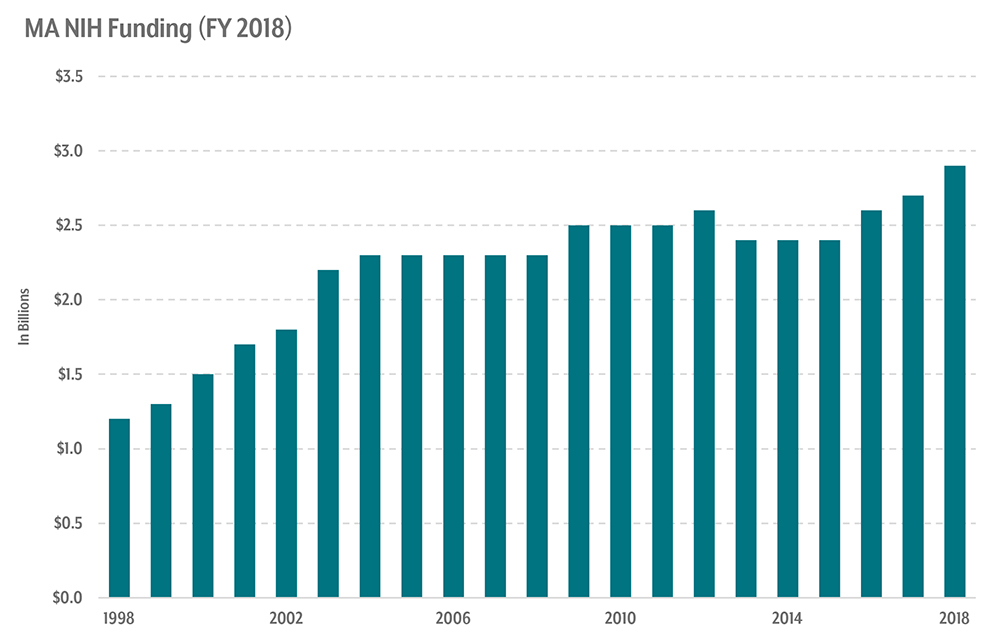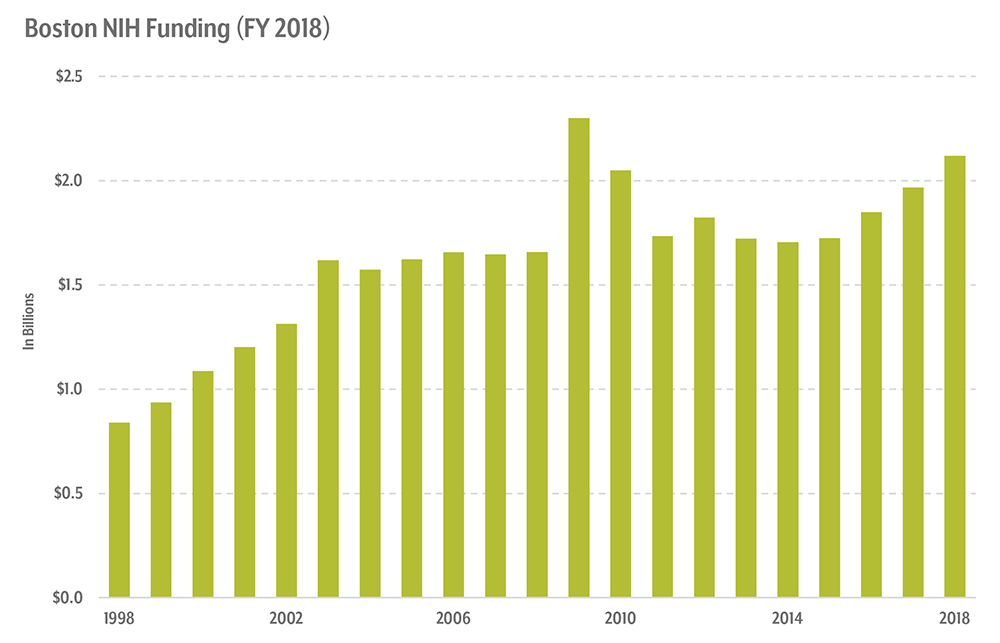
Last year proved to be a funding trifecta for the Massachusetts’ life science industry. Following a banner year for both venture capital and IPOs, funding from the National Institutes of Health (NIH) hit a 20-year high in the Bay State with nearly $3 billion awarded during the 2018 fiscal year. This puts Massachusetts second, behind only California ($4.2 billion) and just ahead of New York ($2.6 billion). While venture capital and other private capital sources drive commercial research and development in both public and private life science companies, grants from the NIH support research efforts in Boston’s many hospitals and educational institutions. With $47 billion in grants awarded to Massachusetts institutes from 1998-2018, it is clear that NIH funding is a major economic driver here. (see Chart 1)

Locally, the city of Boston continues to receive the lion’s share of these NIH dollars. 2018 also marked the 24th consecutive year of Boston receiving the most funding of any city in the US. In fact, 58 Boston-based institutions received 3,861 awards totaling $2.1 billion in funds. This represents 73% of the Massachusetts’ total and 7.6% of the US total. Top recipients include Massachusetts General Hospital ($466 million), Brigham & Women’s Hospital ($389 million) and Harvard Medical School ($209 million). (see Chart 2)

The 2018 fiscal year represents the second-highest year of funding since 1992. That said, the 26-year high seen in 2009 was largely driven by economic stimulus funds following the Great Recession. New York City is gaining ground in the rankings, with nearly $2 billion in NIH funding in 2018. Philadelphia, Seattle and Baltimore round out the top five–receiving $2.9 billion combined. In Boston, nearly 70% of NIH funding goes to independent hospitals, which is a deviation from the US average where 73% of total funds go to universities.
These trends are also a net positive for the region. Not surprisingly, outside of Boston, Cambridge came in second place in 2018, with $381 million in NIH awards. MIT, The Broad Institute and Harvard University are among Cambridge’s top recipients. Worcester landed third on the list, with $172 million. UMass Medical School received $161 million of these funds; proving to be a major economic driver for New England’s second-largest city.
Boston is a global hub for biomedical research and boasts several world-class hospitals and universities. Given these attributes, it is clear why the region receives a large portion of National Institutes of Health annual awards. As the healthcare and biotech industries continue to grow in the coming years, expect Boston to remain on top in terms of NIH funding.
Liz Berthelette is research director at Hunneman, Boston, Mass.








